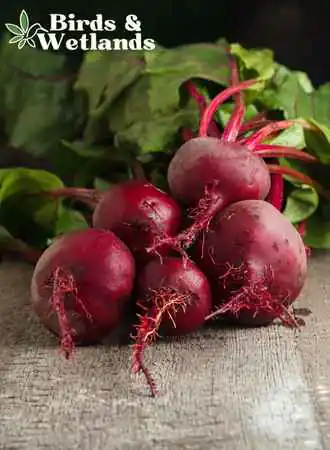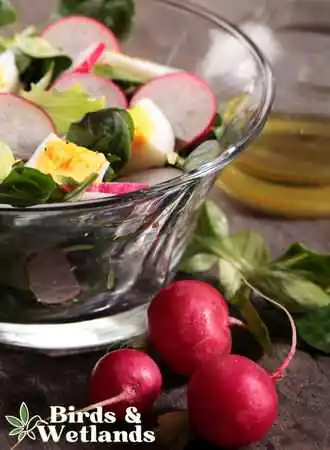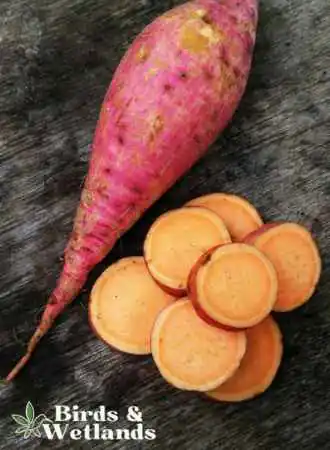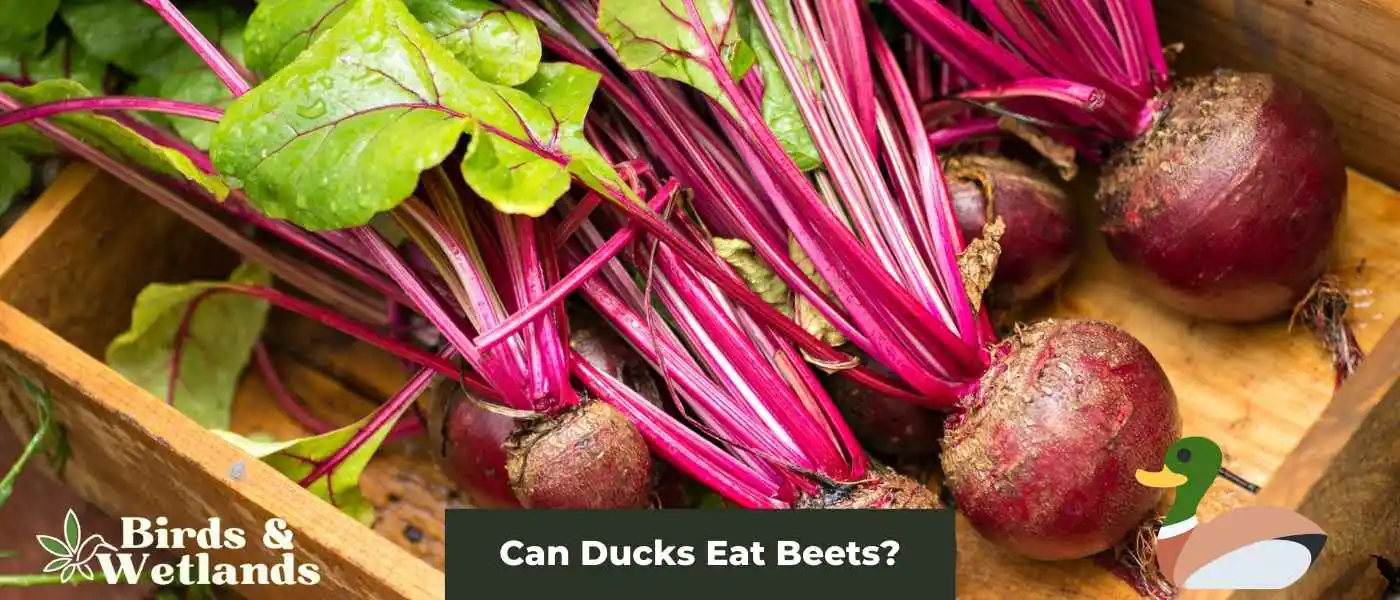Beets are a colorful and healthy root vegetable, but can ducks safely eat them?
In this article, we’ll explore the nutritional benefits and potential risks of feeding beets to ducks.
Yes, ducks can eat beets as they are a safe and nutritious food option. Beets are rich in vitamins, minerals, and fibre, which contribute to a duck’s overall health. However, beets should be offered in moderation and chopped into small pieces for easier consumption.
Key takeaways
- Beets are highly nutritious and loaded with health-promoting properties, but their tough texture and earthy flavor can be off-putting for some ducks.
- Cooking helps to soften the tough fibers, making beets more palatable for ducks. Grating the beets makes them easier to eat, and the smaller pieces are less likely to cause choking.
- Beets contain oxalic acid which is bad for ducks so feeding them large quantities of beets is not the most optimal treat.
What Are the Benefits of Eating Beets for Ducks?

Ducks are generally considered to be very healthy animals, but like all creatures, they need to consume a balanced diet in order to stay in top condition.
One type of food that can be beneficial for ducks is beets. Beets are extremely nutritious and contain natural blood cleansing properties. They are an excellent source of vitamin C, and they also contain a variety of plant compounds that can have positive health effects.
Beets are a good source of antioxidants and they also help to protect against inflammation. In addition, the plant compounds in beets can help to improve cardiovascular health and brain function.
What Is the Main Concern About Feeding Beets to Ducks?

Beets contain high levels of oxalic acid, which can be harmful to ducks. Oxalic acid binds to important minerals in the duck’s gut, preventing them from being absorbed. This can lead to health problems related to mineral deficiencies, which can have a negative impact on the duck’s health.
In short, feeding wild ducks too many beets can lead to health problems. It is therefore important to be aware of these risks and to monitor your duck’s intake of beets.
Calcium Deficiency
Calcium is a mineral that is essential for the health of all animals, including ducks. This mineral is necessary for proper bone and feather development, as well as for eggshell formation. A lack of calcium can lead to weak bones and brittle feathers, and can also prevent ducks from laying eggs.
Iron Deficiency
Iron is an essential mineral for ducks, playing a key role in many of the duck’s bodily functions. For example, iron is necessary for the duck’s blood to carry oxygen throughout its body. It is also used in hemoglobin production which is the protein in the red blood cells.
How to Prepare Beets for Ducks

Cooked beets are better for ducks than uncooked beets because cooking or boiling beets lowers their oxalate content by up to 87%.
Here’s how you serve and cook beets for ducks:
Wash the beets thoroughly to remove any dirt or debris.
Cut the beets into small pieces or thin slices so that they are easy for ducks to eat.
Cook the beets in boiling water for 10 minutes to reduce the oxalate content.
Allow the beets to cool before serving them to ducks.
Serve the beets with fresh water and other food sources available.
If you decide to feed your ducks with uncooked beets, ensure that you grate raw beets for easy consumption and avoid choking.
Best Duck Feed Pellets
Are you a duck owner looking for the perfect feed to keep your feathered friends happy and healthy? Look no further than Purina Duck Feed Pellets! With their nutritionally balanced formula and high-quality ingredients, these pellets are the ultimate solution for providing your ducks with the nutrition they need to thrive.
Pros
- Complete Nutrition: Purina Duck Feed Pellets are nutritionally balanced to provide all the essential vitamins and minerals that ducks need to stay healthy and strong.
- Easy to Digest: The pellets are specially formulated to be easy to digest, which makes them ideal for ducks of all ages.
- Promotes Growth and Development: With its balanced nutrition formula, Purina Duck Feed Pellets are designed to support healthy growth and development in ducks.
- Suitable for All Breeds: Whether you have domestic ducks or wild ducks, Purina Duck Feed Pellets are suitable for all breeds of ducks.
- Trusted Quality: Purina has been producing high-quality animal feed for over 100 years, so you can trust that your ducks are getting the best possible nutrition with Purina Duck Feed Pellets.
Cons
- Cost: Compared to other types of duck feed on the market, Purina Duck Feed Pellets can be slightly more expensive. However, many customers feel that the high-quality ingredients and balanced nutrition formula are worth the extra investment.
- Pellet Size: Some customers have noted that the pellet size of Purina Duck Feed Pellets can be quite large, which may not be suitable for smaller or younger ducks. However, many customers have reported that the pellets can easily be broken up or soaked in water to make them easier to eat.
Other foods to consider for ducks:

| Sweet Potatoes | Sweet Potatoes: Yay or Nay for Ducks? |
| Carrots | Are Carrots a Duck’s Best Friend? |
| Peppers | Can Ducks Handle the Spice of Peppers? |
| Squash | The Scoop on Ducks and Squash |
| Brussels Sprouts | Brussels Sprouts and Ducks: A Perfect Match? |


